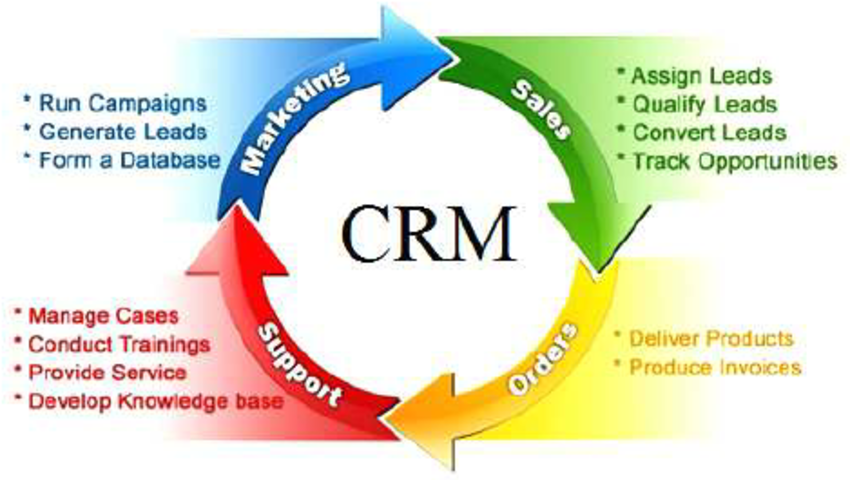Customer Relationship Management (CRM): “Implementing CRM Systems to Foster Customer Loyalty” – Customer Relationship Management (CRM): “Implementing CRM Systems to Foster Customer Loyalty” sets the stage for a fascinating exploration of how businesses can enhance their relationships with customers. In today’s competitive landscape, understanding and nurturing customer loyalty is vital for success. CRM systems play a pivotal role in achieving this by streamlining processes that allow businesses to connect with their customers on a deeper level.
By integrating technology and customer insights, companies can create personalized experiences that not only meet but exceed customer expectations.
This journey into CRM systems will unveil the strategies and tools that organizations utilize to foster loyalty, emphasizing the importance of truly understanding customer needs and behaviors. From data collection and analysis to implementing effective communication strategies, we delve into the myriad ways CRM systems can transform customer interactions into long-lasting relationships.
In the ever-evolving landscape of technology, the internet has become an integral part of our daily lives. From communication to shopping, the online world has transformed the way we interact, work, and entertain ourselves. In this article, we will delve into the various facets of the internet, discussing its impact on society, the economy, and our personal lives. First and foremost, let’s address the profound influence of the internet on communication.
Gone are the days when sending a message required a stamp and a trip to the mailbox. The advent of email, social media platforms, and instant messaging apps has made communication instantaneous and accessible to virtually anyone with an internet connection. This has fostered a more connected world, where people can maintain relationships across great distances. Family members can share moments in real-time through video calls, and friends can stay in touch regardless of geographical barriers.Moreover, the internet has also paved the way for a plethora of information at our fingertips.
With a simple search query, individuals can access a wealth of knowledge on almost any subject imaginable. This democratization of information has empowered users to educate themselves in ways that were previously unimaginable. Online courses, webinars, and tutorials enable anyone to learn new skills or explore interests from the comfort of their home. However, this also comes with the responsibility of discerning credible sources from misinformation, a challenge that many navigate daily.The economic impact of the internet cannot be understated.
E-commerce has revolutionized retail, allowing businesses of all sizes to reach customers beyond their local markets. Online shopping has become a preferred method for many, offering convenience and often competitive pricing. Major players like Amazon and eBay have changed the dynamics of consumer behavior, leading to shifts in traditional brick-and-mortar shopping. Small businesses have also benefited from the internet, utilizing platforms like Etsy and Shopify to showcase their products and reach global audiences.Additionally, remote work has gained traction thanks to internet technologies.
The COVID-19 pandemic accelerated this trend, forcing many companies to adapt to a remote work model. Tools like Zoom, Slack, and Asana have enabled teams to collaborate effectively from different locations, showcasing the internet’s ability to facilitate productivity. This shift has led to discussions about work-life balance, as employees navigate the boundaries between their personal and professional lives in a home office setting.However, as we embrace the countless benefits that the internet brings, we must also be aware of its drawbacks.
Issues such as cyberbullying, data privacy concerns, and the spread of misinformation are significant challenges that users face today. The anonymity of the internet can lead to negative behaviors, and individuals must be vigilant about their online interactions. Furthermore, the collection and use of personal data by companies raise ethical questions about privacy and consent. As users, it’s crucial to educate ourselves about protecting our information and understanding our rights in a digital age.Social media, in particular, is a double-edged sword.
While it allows for sharing ideas and connecting with others, it can also contribute to feelings of isolation and inadequacy. The curated nature of social media often leads individuals to compare their lives to the highlight reels presented by others, which can affect mental health. Responsible social media use, including setting boundaries and being mindful of what we consume, can help mitigate these effects.In terms of connectivity, the digital divide remains a pressing issue.

Not everyone has equal access to the internet, leading to disparities in education, job opportunities, and social engagement. Rural areas and low-income communities often face challenges in accessing reliable internet connections, creating a gap between those who can fully participate in the digital world and those who cannot. Bridging this divide is essential for ensuring that everyone can benefit from the advancements the internet offers.Looking forward, the future of the internet seems promising yet uncertain.
Emerging technologies such as artificial intelligence, virtual reality, and the Internet of Things (IoT) are set to further enhance our online experiences. AI algorithms are revolutionizing everything from content creation to customer service, while virtual reality offers immersive experiences that could transform fields like education and entertainment. However, these advancements also necessitate discussions about ethics, security, and the implications of an increasingly automated world.In conclusion, the internet has undeniably reshaped our lives in myriad ways, connecting us, transforming industries, and providing opportunities for learning and growth.
While it offers incredible benefits, it also presents challenges that we must navigate with care. As we continue to integrate the internet into our daily routines, fostering a culture of responsibility, awareness, and inclusivity will be key to ensuring that everyone can thrive in this digital era. The internet is here to stay, and how we choose to engage with it will determine its impact on future generations.
